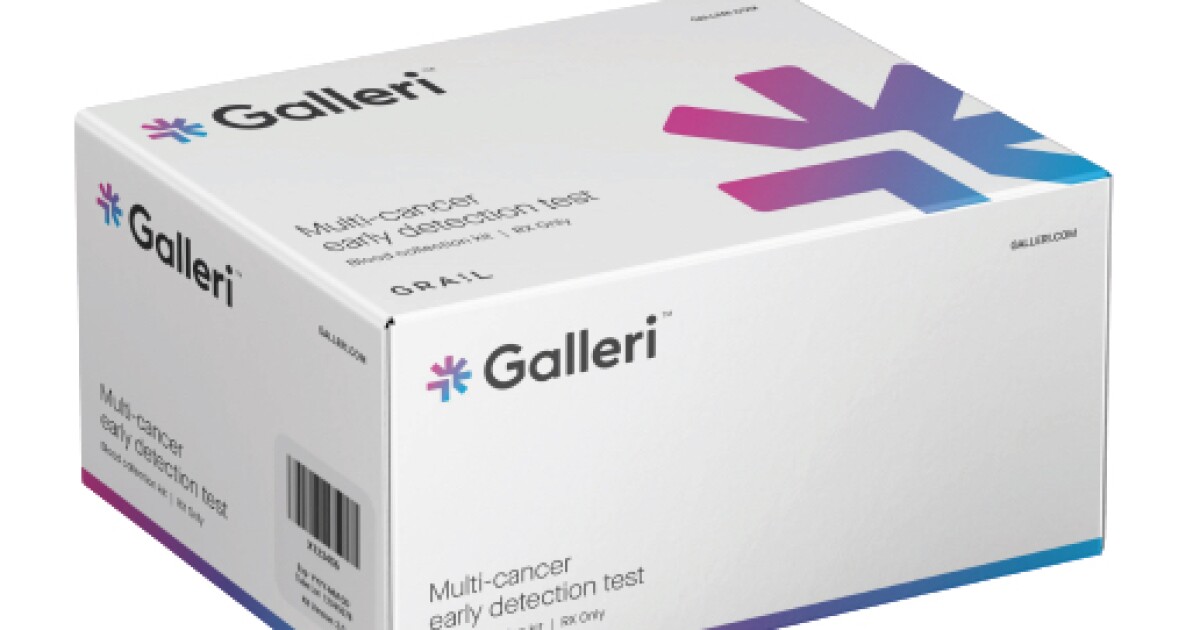Blood
EVMS doctors studying blood test that can detect 50+ cancers, manufacturers say
NORFOLK, Va. — In March, News 3 first introduced you to Chesapeake Fire Dept. Lt. David Brock, who has served with CFD for more than 20 years.
Health
Chesapeake Fire Dept. offers multi-cancer early detection test for firefighters
“I think you just kind of wanted to have a job where, at the end of the day, you felt like you did something worthwhile, and help people out,” Brock said.
Earlier this year, he rolled up his sleeves for his health.
“You don’t really think of it at the moment, but you kind of know it’s always, in the back of your mind, there’s a possibility,” he said.
Brock is talking about cancer.
In the last year, News 3 Investigator Zak Dahlheimer has done several reports about firefighters and their increased cancer risks, including a recent story featuring Chesapeake firefighters taking the “Galleri” blood test.
“They know they’re doing something for the better of themselves [and] for the better of their family,” Capt. Chris Moore of Chesapeake Fire Dept. said in March.
Officials with the test’s parent company, GRAIL, say it’s a blood test that can detect more than 50 different types of cancer and provide results in a roughly two-week turnaround.
“[If] you can detect cancer before it’s metastatic, you have a significant chance of improving the patient’s survival and quality of life,” Dr. Whitney Jones, Senior Medical Advisor for GRAIL told News 3 in May at an event involving Virginia Beach firefighters getting the Galleri test.
GRAIL officials said how the Galleri test works is it looks for signals in your blood that may be linked to cancer.
“Conceptually, you’re basically not even needing a cell to demonstrate that there’s cancer in the body,” Dr. Sami Tahhan, Professor of Medicine at Eastern Virginia Medical School (EVMS) said.
Dr. Tahhan is the lead researcher of a new study being conducted at EVMS on the Galleri test.
“This is unbelievable, in my opinion,” Tahhan said of the test. “This would really expand our horizons in terms of cancers we can detect and can detect even earlier as well.”
He told News 3 the test can help streamline the process of checking for cancer.
“It doesn’t require a whole lot of testing. [It’s] fairly non-invasive. You’re not doing scans. You’re not doing other things,” Dr. Tahhan said.
Right now, Dr. Tahhan said EVMS’s study on the effectiveness of the Galleri test is ramping up recruitment for participants, with a goal of at least 150 people representing different ethnicities.
He told News 3 that the study includes the blood test and a questionnaire to be filled out three years in a row that addresses any symptoms and physical or mental impacts.
The goal, Dr. Tahhan said, is to make the test more available, with GRAIL officials saying on their website, “Most health insurance plans do not cover the cost of the Galleri test.”
“Part of doing the study, proving the concept, proving that we have the right sensitivities, specificities for the test in the long run is going to allow us to pass it through and have Medicare pay for it and have commercial insurances pay for it in the long run,” Dr. Tahhan said.
So far, Dr. Tahhan said results from the EVMS study show great, promising data.
“The sensitivities, specificity, how many true positives are there versus how many false positives are there all look really, really good,” he said. “Once that data is there showing that this is the right test, it’s going to do what we need it to do. I think we’ll get there.”
Currently, there are bills in both the U.S. House of Representatives and the Senate that were introduced earlier this year to provide Medicare coverage for multi-cancer early detection screening tests.
A GRAIL spokesperson said the following in a statement to News 3 about their Galleri test and the EVMS study:
GRAIL’s Galleri® is a multi-cancer early detection test that can detect a shared cancer signal across more than 50 types of cancer through a routine blood draw. When a cancer signal is detected, the Galleri test predicts the cancer signal origin, or where the cancer is located in the body, with high accuracy to help guide the next steps to diagnosis. The Galleri test requires a prescription from a licensed health care provider and should be used in addition to recommended cancer screenings such as mammography, colonoscopy, prostate-specific antigen (PSA) test, or cervical cancer screening. It is intended for use in people with an elevated risk of cancer, such as those aged 50 or older.
Eastern Virginia Medical School is an active clinical site for the PATHFINDER 2 study. The purpose of the PATHFINDER 2 study is to evaluate the safety and performance of GRAIL’s MCED test in a population of individuals aged 50 years and older who are not actively being evaluated or treated for cancer. Participants with a “cancer signal detected” test result will receive targeted diagnostic procedures based on the predicted cancer signal origin(s) to determine if cancer is present. The number and types of diagnostic procedures needed to achieve diagnostic resolution will be assessed. Participant-reported outcomes will be collected at several time points to assess perceptions about the multi-cancer early detection test, as well as use of guideline-recommended standard of care cancer screening tests.
Dr. Tahhan said they’re looking for more male participants, as well as African-American, Hispanic, and Pacific Islander participants.
If you’re interested in learning more or participating in this study, EVMS officials said you can contact Jordan Pettaway, EVMS Research Associate, at (757) 446-7445 or PettawJL@evms.edu.

